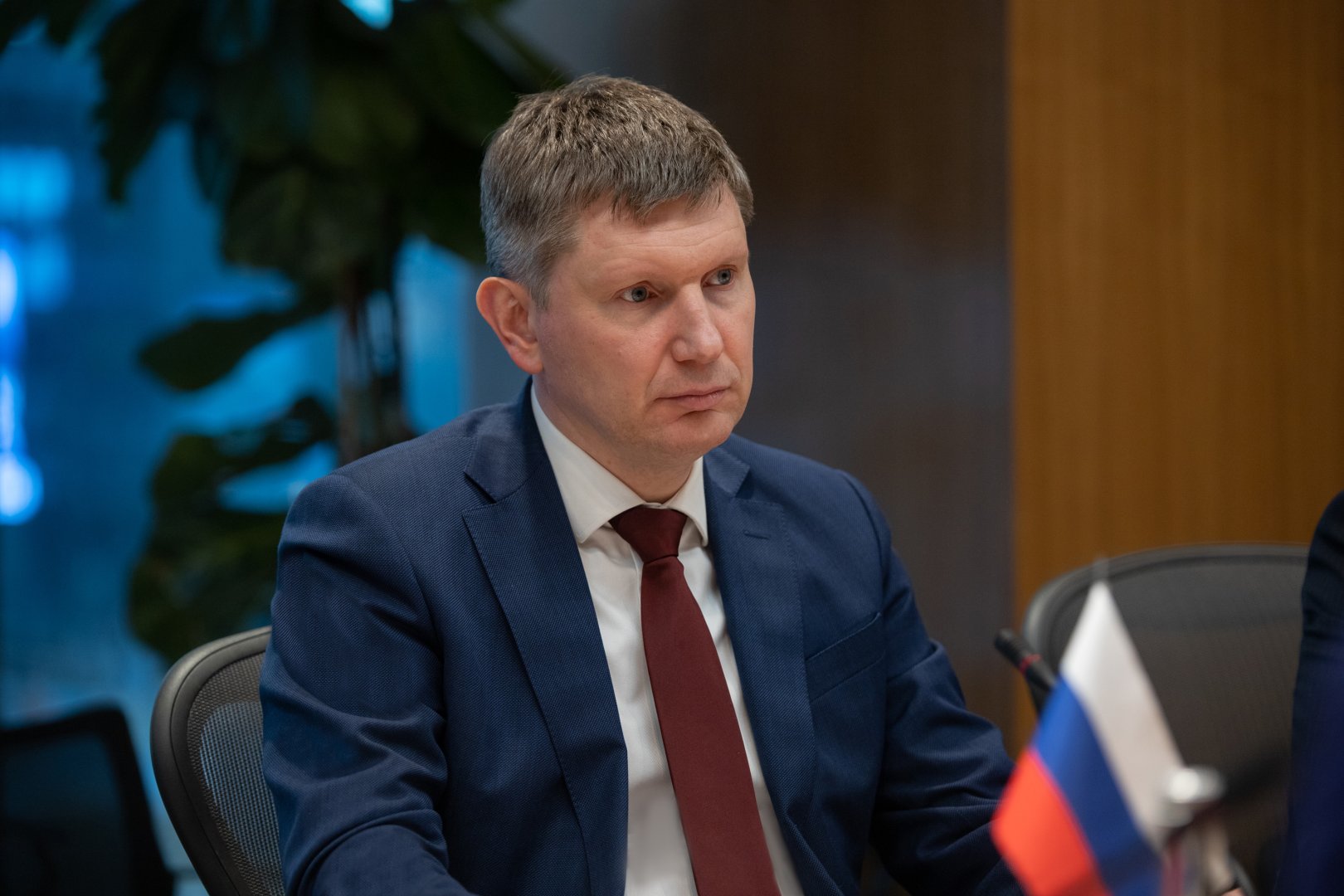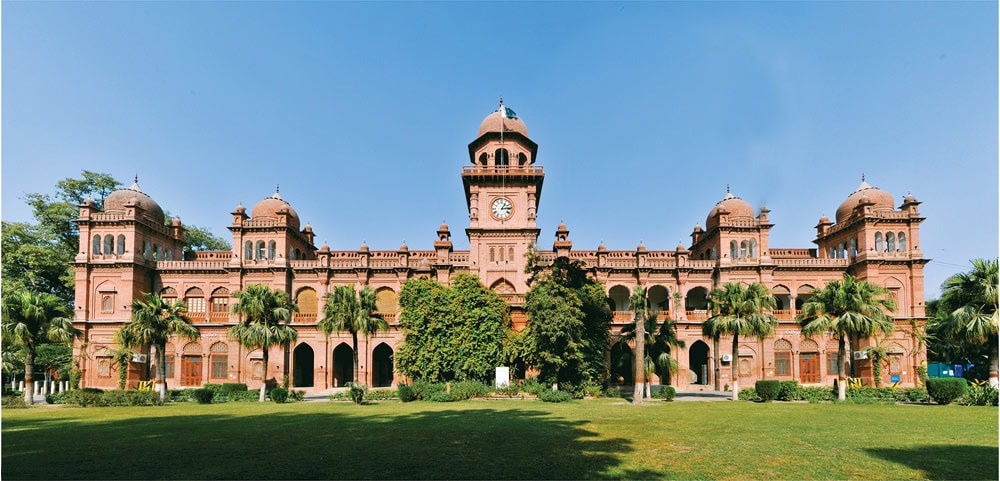
In an exclusive interview with on thesidelines of COP29, Reshetnikov expressed confidence thatAzerbaijan will give fresh momentum to global climate policy. "We are confident that Azerbaijan will provide fresh momentum toadvancing the full spectrum of climate policy measures. Ourcountries must show that hydrocarbon-exporting nations are not onlycommitted to but are actively implementing the principles of a fairtransition to a low-carbon economy while also taking a responsibleand proactive approach to the green agenda," he said.
Reshetnikov also outlined Russia's focus at COP29, emphasizingthe importance of international cooperation to address globalclimate challenges. He highlighted the need for free access tofinancing and technology to support the transition in developingcountries. "We will be discussing a new collective goal for financingdeveloping countries, as their support is essential to achievingglobal climate targets.

Russia advocates for maintaining thecurrent approach under the UNFCCC regarding the financialobligations of developed countries toward developing nations. The focus will remain on emission reduction and the future roleof fossil fuels. Last year, we successfully highlighted thecritical role of transition fuels, particularly natural gas, in thelow-carbon transformation of various sectors.
In Baku, we aim tofurther advance the recognition of natural gas as a key enabler fordecarbonization efforts," he said. Reshetnikov added that it is also crucial to establish a new setof rules for the international trading of carbon credits. "We aim to advance our approaches to inventorying emissions andremovals, which played a key role in the comprehensive update ofRussia’s greenhouse gas inventory.
These methods focus onaccurately accounting for the contribution of managed ecosystems tothe greenhouse gas balance, as well as the national specifics oftechnologies used across various sectors of the Russianeconomy. The new methodology for the national inventory represents one ofthe first major outcomes of the Russian Climate Monitoring Systemproject, initiated by the President of the Russian Federation.Since 2022, the Ministry of Economic Development, in collaborationwith Roshydromet, the Ministry of Natural Resources, the Ministryof Energy, and over 50 leading scientific institutes, has beenimplementing this important project," the minister said.
The minister stressed the importance of transitional financingfor sectors with high emission levels or where emission reductionsare particularly challenging. "Strict restrictions on fossil fuel support and the refusal tofinance such projects will undermine the achievement of theSustainable Development Goals (SDGs) and jeopardize the energysecurity of countries. Any unilateral barriers or restrictionsdisguised under the climate agenda are unacceptable.
We believe itis essential to establish practical mechanisms for the effectiveimplementation of international climate agreements. A central issuein this regard is the creation, under Article 6 of the ParisAgreement, of a robust global system for trading carbon units,including through bilateral cooperation mechanisms. The introduction of carbon units under Article 6 will be acrucial step in recognizing the quality of climate projects,attracting investment, and enabling the sale of carbon units on theinternational market," he said.
The minister also highlighted that ahead of COP29, Azerbaijanproposed the creation of a Climate Finance Action Fund, aimed atinvesting in climate change mitigation efforts in developingcountries, with its headquarters based in Baku. "The fund is intended to bring together oil-producing countriesand companies that are committed to diversifying their investmentstoward green initiatives and are ready to support low-carbondevelopment. Expert consultations have just begun, and we are stillfinalizing the key operational parameters of the fund.
We willactively participate in these discussions as well," the ministersaid. Reshetnikov also emphasized Russia's long-term commitment to alow-carbon economy. "Decarbonization directly impacts the competitiveness ofcompanies, and businesses are increasingly recognizing thisreality.
As a result, working within the framework of the climateagenda has become one of the most critical factors driving thedevelopment of the global economy. Look at the BRICS nations, thecountries of the Persian Gulf, and the Asia-Pacific region—all areactively engaging with the climate agenda. The Climate Summit is a unique platform that annually bringstogether thousands of representatives from the public sector,business, and the scientific community.
The decisions made at theconference not only set global trends but also serve as benchmarksfor the actions countries take in climate policy. At the same time,these decisions allow each country to choose the tools andstrategies that best align with its national interests. This year, the focus of the conference is financial.
The scopeof assistance, funding sources, and climate finance definition willbe discussed in detail. The allocation of financial flows tospecific projects is a crucial issue. Reaching an agreement on a"global taxonomy of green projects" will undoubtedly shape thefuture of the climate agenda.
In this context, it is essential thatwe address transition financing for industries with high emissionsor those where reducing emissions is particularly challenging,"Reshetnikov said. The minister emphasized that national scientific expertiseshould play a central role in providing technical support forclimate negotiations and decision-making at the global level. "In addition, national studies can significantly enrich andclarify global climate data.
The scientific community will present Russia's national project,the Russian Climate Monitoring System, at the Russian pavilion onNovember 12. We are eager to collaborate and share our experiencein utilizing this system for preparing national reports, includinginventories of emissions and carbon sequestration. The results ofthis project play a crucial role in identifying effective solutionsfor decarbonization and adaptation while also helping to structurethe energy sector and the broader economy more effectively.
Another pressing issue is the conservation of water resources.Our countries are witnessing a decline in the Caspian Sea’s waterlevel due to climate change. To address this, we proposeestablishing a platform for the exchange of scientific andtechnical expertise.
Additionally, we are prepared to share theresults of our monitoring and modeling studies on the ecosystems ofthe Caspian Sea and the Samur River. Furthermore, we are committedto training Azerbaijani specialists to support efforts in buildinga national inventory of greenhouse gas emissions and carbonsequestration," he said. The minister emphasized that Azerbaijan is a key strategicpartner for Russia.
"This partnership is formalized in the Declaration on AlliedCooperation, signed by the heads of state of Russia and Azerbaijanin 2022, and reflected in ongoing efforts to enhance stability andsecurity on both global and regional levels. In early 2024, a roadmap was approved outlining key areas ofcooperation for the next three years. These include strengtheningthe North-South International Transport Corridor, increasing thenumber of joint projects, boosting food supplies, and expandingcollaboration in the social, humanitarian, and tourism sectors.
Trade and economic ties between the two nations remain strong,with Russia ranking as one of Azerbaijan's top three tradingpartners. Bilateral trade continues to show positive dynamics, withtrade turnover increasing by 8.5 percent during the first eightmonths of 2024," he said.
He noted that Russian exports grew by nearly 10 percent, drivenby supplies of oil and oil products, foodstuffs, and agriculturalraw materials (such as cereals, fats and oils, cocoa, andconfectionery); metals (including ferrous metals and aluminum);plastics; as well as electrical machinery and equipment. "I would also like to highlight a 5.5 percent increase in ourimports from Azerbaijan.
We have seen a rise in the volumes ofvegetables, eggs, dairy products, both alcoholic and non-alcoholicbeverages, animal and vegetable oils, plastics, chemical products,and electrical household appliances, as well as ships and boatsimported from Azerbaijan. By the end of the year, we expect mutual trade to grow by atleast 10 percent. Investment projects are further strengthening ourtrade and economic cooperation.
Nearly 1,300 enterprises withRussian capital have been established in Azerbaijan. AvtoVAZ has initiated production in the automotive sector,producing over 1,000 cars this year. Additionally, AvtoVAZ hasassembled 179 GAZ Group vehicles, and the KAMAZ service center isnow operational.
The pharmaceutical industry is producing adiabetes treatment drug and expects to manufacture the first batchof insulin soon. All of these developments are part of the ongoingeconomic cooperation between Russia and Azerbaijan," the ministersaid. Reshetnikov highlighted the opening of a joint transport andlogistics center in Dagestan this past August.
He also underscoredone of the most significant milestones of 2024: the signing of acontract for the supply of cars to the Baku Metro. "Looking ahead, we plan to deepen cooperation in the industrialsector. Next year, we aim to launch a plant for aluminum and steelcomposite panels, and discussions are already underway to establishproduction of chemical products at the Sumgait Chemical IndustrialPark," he said.
The minister pointed out that this year, Russia and Azerbaijanhave made significant progress in advancing their cooperation onclimate change. "We have finalized the Memorandum of Understanding on ClimateChange and Low Carbon Development," the minister noted. "As areminder, the memorandum was signed during the visit of RussianPresident Vladimir Putin to Azerbaijan on August 19, 2024.
Thisdocument establishes the framework for joint climate projects andthe exchange of expertise on climate change adaptation. We areeager to begin bilateral consultations as soon as possible, so wecan move swiftly into the practical implementation of thememorandum’s provisions," the minister concluded..










